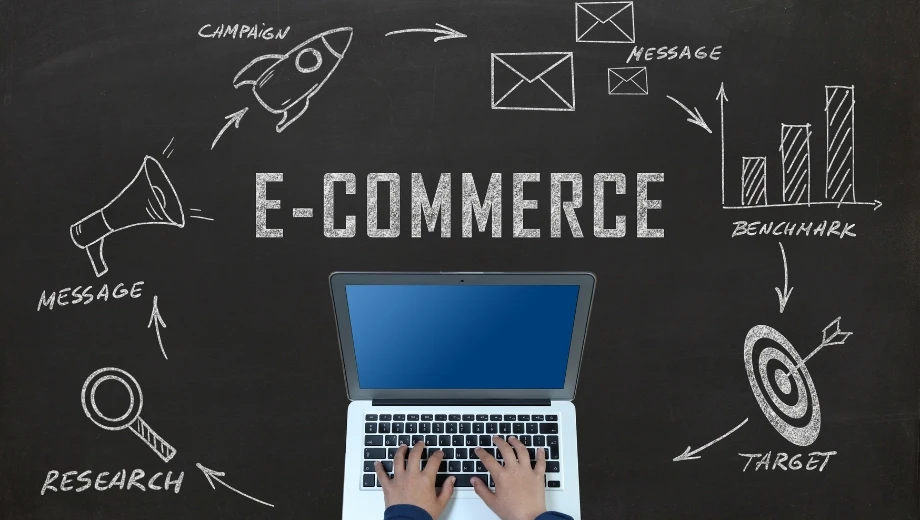
Top Features of eCommerce Cloud Transforming Online Businesses
The internet world is growing fast, and to be able to stick around, online businesses have to keep abreast of the latest innovations. Among the most fascinating of recent years has been the growth of eCommerce cloud solutions. It provides scaling, efficiency, and user experience capabilities to businesses.
You will get that leverage to grow if you are starting or have an established business with the help of cloud technology. Let us now jump onto the top features of these eCommerce cloud platforms which are in turn shaping the future of online businesses.
1. Scalability to Grow
Running promotions or launching seasonal sales usually spells sudden spikes in website traffic. With cloud eCommerce platforms, no problem; they automatically regulate for an increased demand, keeping your site up and operational regardless of the amount of visitors it receives.
For example, during a Black Friday, your systems will not crash or slow down. Your website will perform just as smoothly as it does on a regular day. This scalability ensures a better experience for your customers.
2. Keeps Your Business Secure
Online security: Non-negotiable, when handling sensitive customer data. eCommerce cloud platforms are unrelenting about what they prioritize on such security: secured encryption, regular checks for vulnerabilities in the system, global standard compliance with GDPR, and PCI DSS to mention but a few.
These help you avoid data breaches and keep your customers’ confidence. Such further features as real-time threat detection add an extra layer of safety so you can relax and continue growing your business without losing your heads from cyber threats.
3. Connects Easily with Other Tools
The modern eCommerce platform lets you link easily to your favorite tools, be it your CRM, payment gateway, or marketing app. This means your workflows will be more efficient, and you will waste fewer moments switching between systems.
Take, for example, the use of Shopify or HubSpot as integration channels to manage customer interactions and automate your marketing campaign. This makes your business more efficient and helps you in decision-making according to real-time data.
4. Provides Personalized Shopping Experience
Customers love to feel unique, and personalization is the way to retain their attention. Cloud platforms use AI and ML-based analysis of customer behavior and offer recommendations accordingly.
Think about the Amazon interface, where they suggest their products based on your previous purchases which is personalization in action. Features like that boost sales since it just shows customers what they are looking for.
5. Speeds Up Your Website
No one likes waiting for a slow website to load. Research shows that just a one-second delay can cost you sales. eCommerce cloud platforms use Content Delivery Networks (CDNs) to make sure your site loads quickly, no matter where your visitors are.
Faster websites make sure to keep customers happy; they have lower bounce rates and improve rankings on search engines like Google.
6. Makes Going Global Easier
Expanding your business into new markets is a daunting task, but eCommerce cloud solutions make it much easier. They provide multiple functionalities such as multi-currency support and language customization, besides the option to have automatic tax calculations so that clients can easily connect with international consumers.
Besides, global server networks ensure your site works perfectly irrespective of your customers’ location and help you reach new markets without stress.
7. Saves You Money
Traditional IT systems could cost an arm and a leg to build and maintain. Cloud platforms do not incur such costs because you pay only for what you use with affordably priced subscription plans. This is particularly a boon for small businesses.
Updates and maintenance are also not your responsibility with cloud providers. You will need no extra IT staff to handle such tasks.
8. Optimized for Mobile Users
More than ever, consumers shop from their phones. eCommerce cloud platforms ensure your site is beautiful and functions well on mobile devices. That way, customers out and about will enjoy a seamless shopping experience.
For example, progressive web apps (PWAs) and responsive designs ensure that as mobile visitors go about their business, their experience is just as rich as the desktop user’s experience.
9. Supports Multi-Channel Seamlessly
Customers do not shop only on the website; they shop on applications, social media, and all other channels. eCommerce cloud platforms provide the user the facility to create a consistent shopping experience across all of these channels.
This means that a person can browse items on Instagram, add them to a cart on your app, check out on your website without any trouble. It is all about making shopping as easy as possible for your customers.
10. Always Up-to-Date
Keeping your e-commerce platform up to date ensures one has been ahead of the competition. Cloud platforms automatically handle updates which means you will always be on the latest technology.
That will mean you’ll never have to bother about obsoleted features or security risks, and you can focus on running your business.
11. Protects Your Data in Emergencies
Imagine your company losing all its data due to a crash or cyberattack – it is a nightmare for businesses. Fortunately, disaster recovery solutions that could save all your data are offered by cloud platforms, promoting business continuity in unexpected events.
Your regular backups and plans for business can help you bounce back soon, reducing losses and downtimes.
Conclusion
The eCommerce cloud changed all of that for businesses with great strength in scalability, security, and customer experience. Whether you’re looking to go global, speed up your website, or customize your offerings, one thing is for sure: these cloud platforms have what you need. All this means you would not only be keeping up with the times but preparing your business for long-term success. Switch now to the cloud and transform your online business if you haven’t done it already.
Recent Posts

Top Features of eCommerce Cloud Transforming Online Businesses





